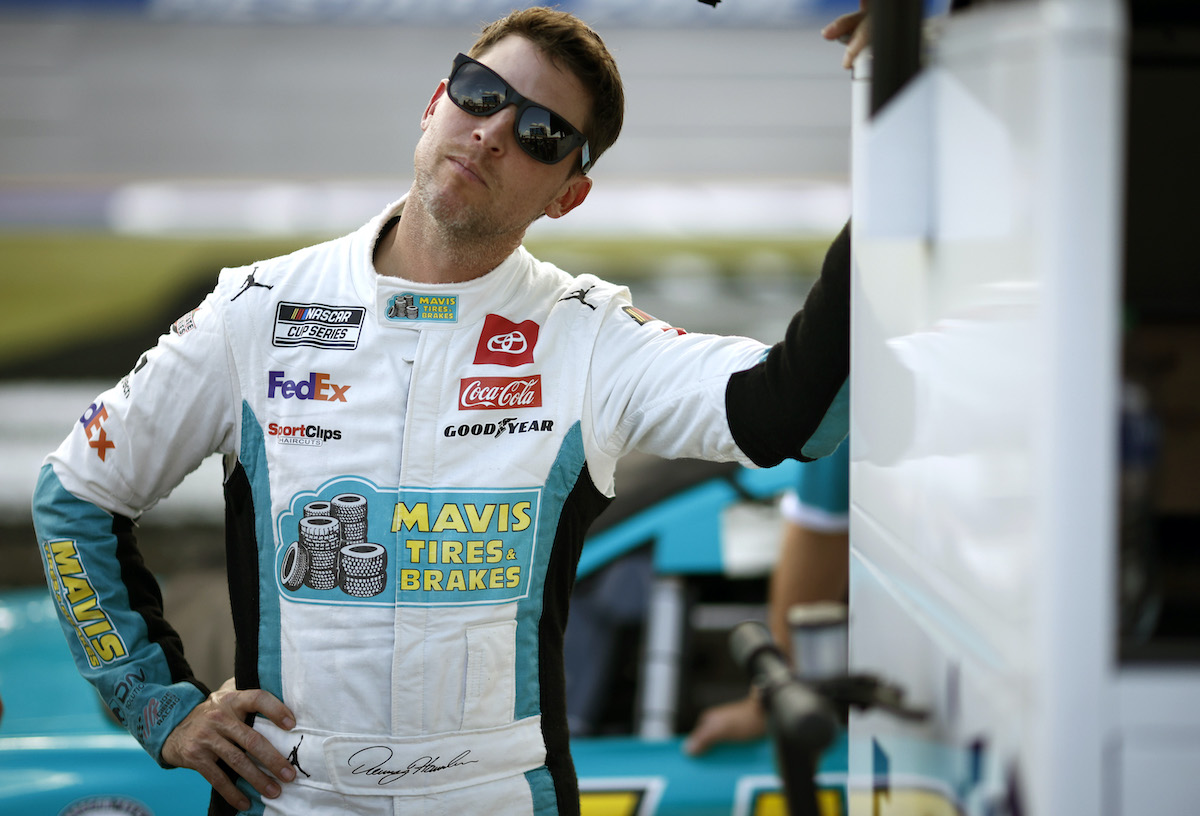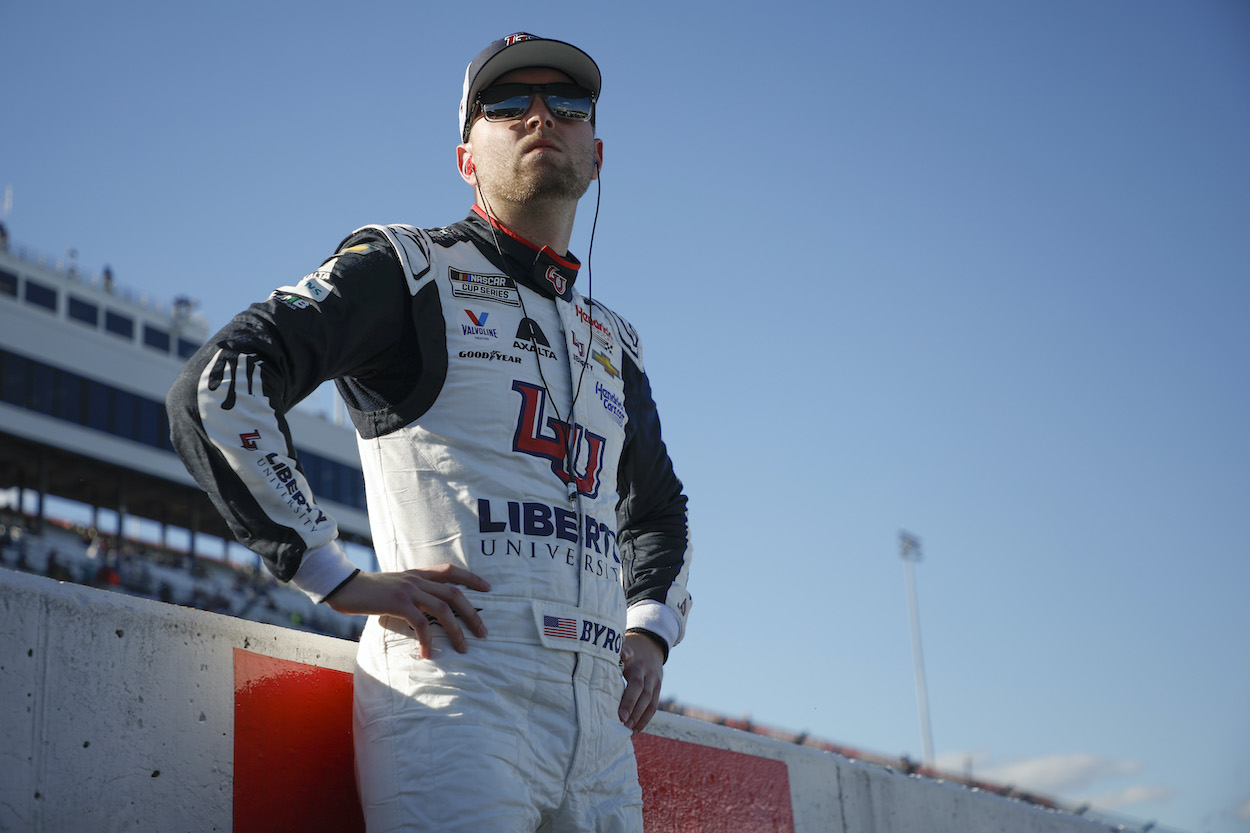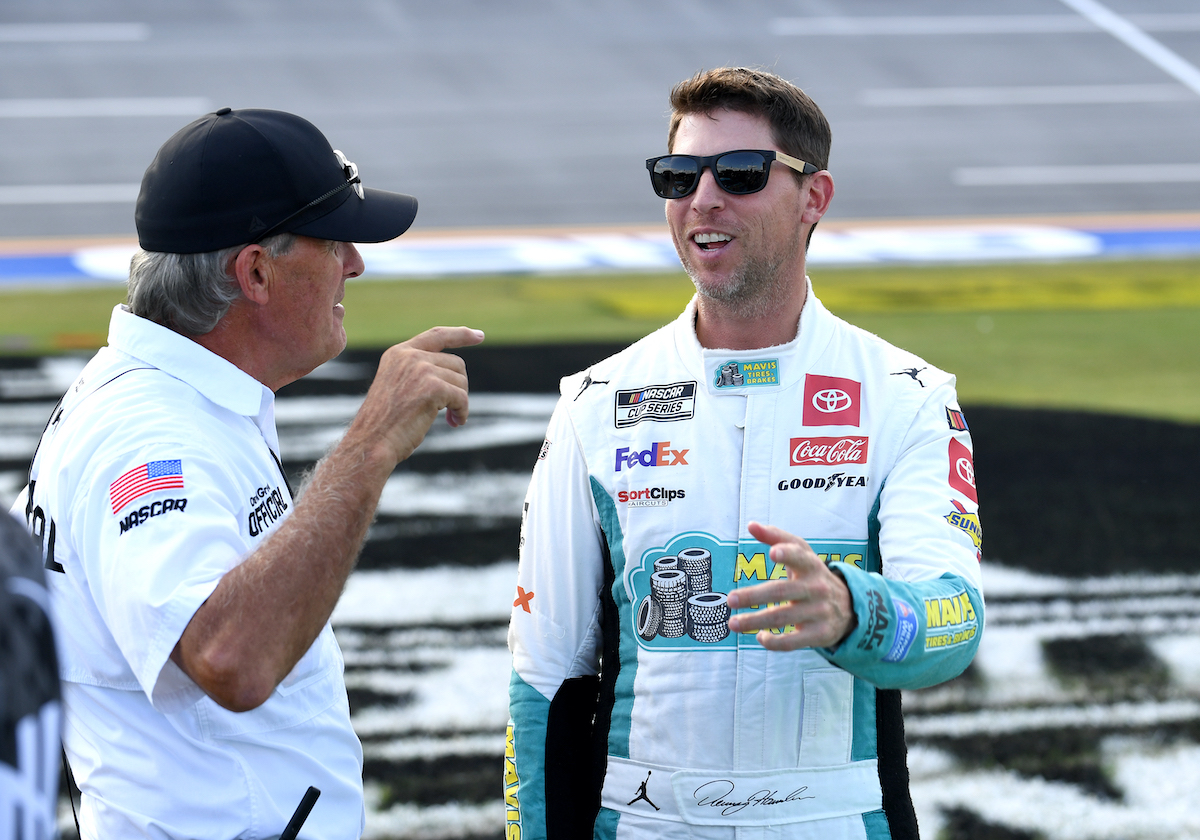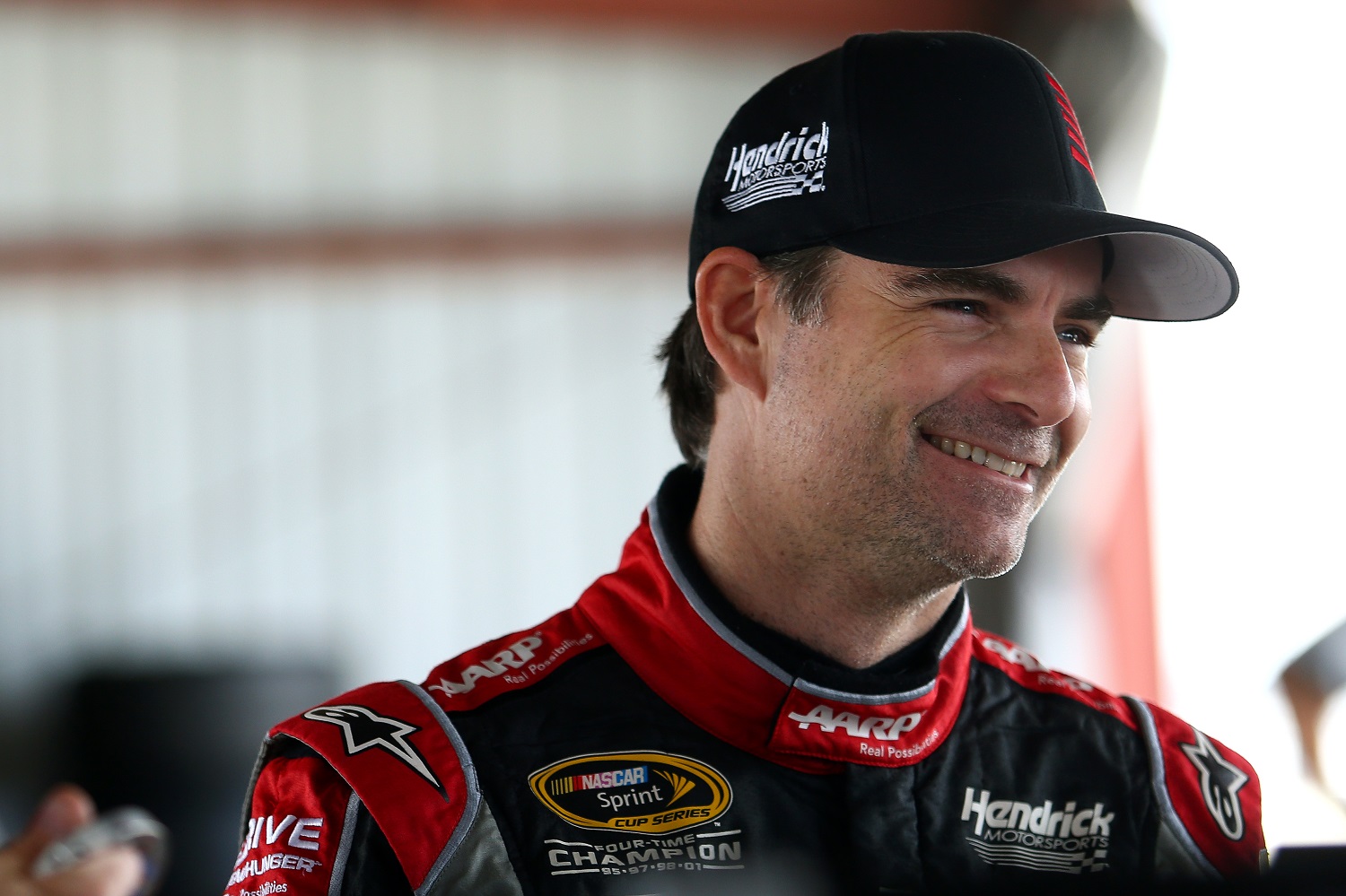
Jeff Gordon Scored 1 of His 93 NASCAR Cup Series Wins While Honoring a United Flight 93 Pilot After the 9/11 Terrorist Attacks
Recent 20th-anniversary remembrances of those who died in the terrorist attacks reminded us of how time stopped in the aftermath of Sept. 11, 2001. Fear turned to anger and then determination in the ensuing days. Soon, NASCAR and other leagues returned as the country sought to restore normalcy. There was little more normal in sports that year than Jeff Gordon winning races, and the Cup Series star came through in front of a United Flight 93 family.
The NASCAR Cup Series resumed 12 days after the 9/11 attacks
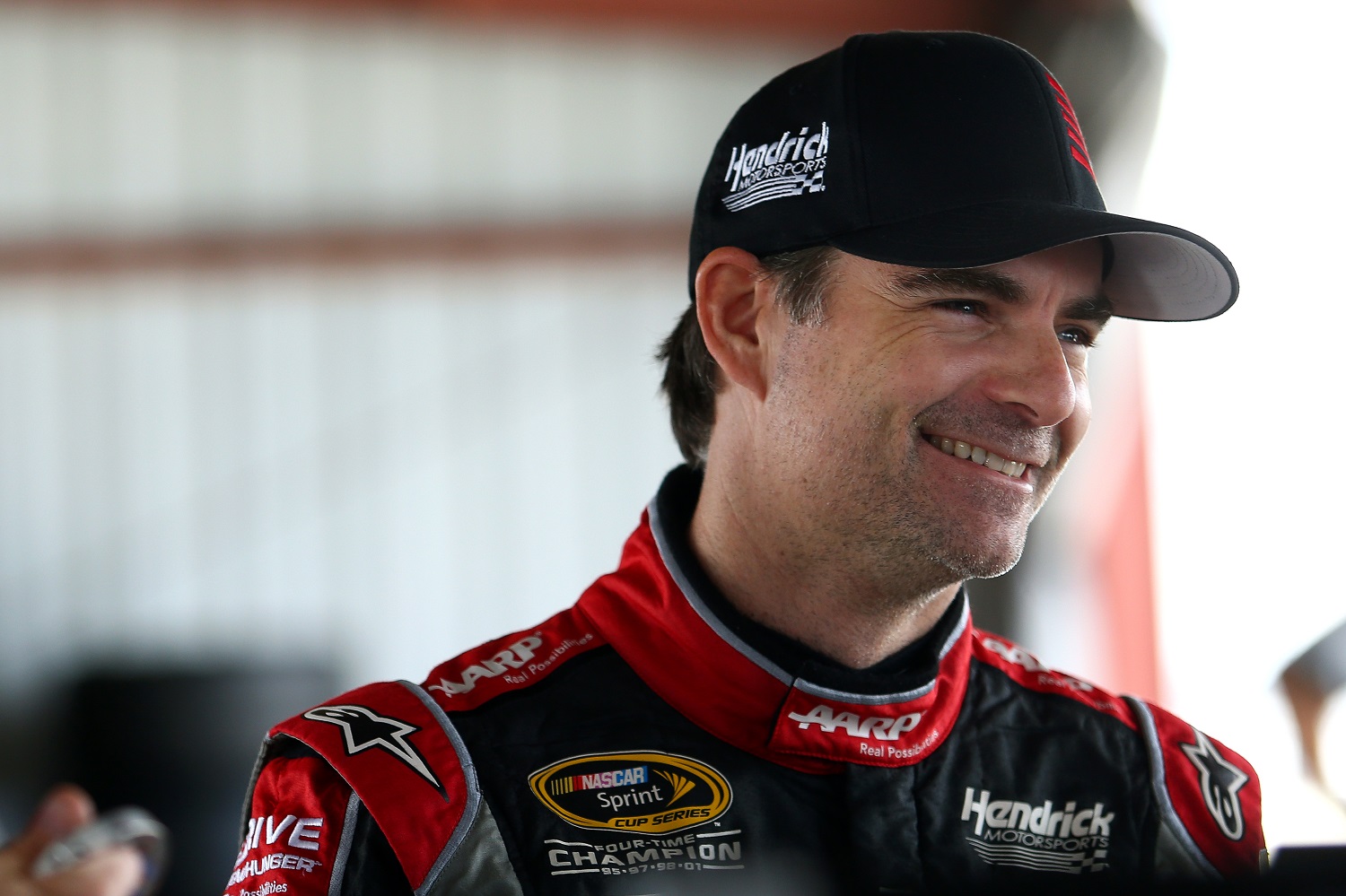
On Sept. 8, 2001, Ricky Rudd saved his car off turn 2 following a bump by Kevin Harvick and went on to win the Chevrolet Monte Carlo 400 at Richmond International Speedway, with Dale Earnhardt Jr. following the pair across the finish line to take third.
The NASCAR Cup Series was to continue the following weekend at New Hampshire Motor Speedway. However, the terrorist attacks that toppled both towers of the World Trade Center and damaged the Pentagon shut down many aspects of the business and entertainment worlds for the remainder of the week.
NASCAR officials made the decision to move the New Hampshire race to the end of the season and resume on Sept. 23 at Dover, where Earnhardt took the checkered flag in the MBNA Cal Ripken Jr. 400 over Jerry Nadeau, Rudd, and Jeff Gordon on a day on which many of the cars sported patriotic paint themes.
Jeff Gordon raced at Kansas in front of the United Flight 93 captain’s family
With the Dover race in the books, the NASCAR Cup Series moved on to Kansas City, Kansas, to unveil a new 1.5-mile oval. Kansas Speedway joined the schedule that fall and acquired a second annual date a decade later. Built at a cost of $261.5 million, according to the Kansas City Star, the track stood out with banking on the apron that was less dramatic than at other intermediate tracks.
“There was a combination of focus on trying to win a championship on the new racetrack, but what happened around the country on 9/11 was still fresh on everybody’s mind,” Gordon said.
Shortly after the terrorist attacks, Jeff Gordon learned that Jason Dahl, the captain aboard hijacked United Flight 93, was a huge fan of the driver of the No. 24 Chevy, as was his 15-year-old son, Matt. Jason Dahl and 44 others perished when the plane crashed in Pennsylvania.
Gordon’s team invited the family to travel from Littleton, Colorado, to the Kansas race as guests. According to the newspaper, Matt and his grandfather accepted the offer. The team gave them the VIP treatment at the track, and Gordon met them before the race.
“We wanted to be sensitive but at the same time, do all we could for those who were going through this,” Gordon said. “Matt was a very quiet and reserved kid, but he seemed humbled and appreciative of being able to be there, and we wanted to pay tribute to his dad.”
Jeff Gordon broke in the Kansas track with a victory
Jeff Gordon didn’t dominate at Kansas Speedway on Sept. 30, 2001, but he drove well enough to win. After trading the lead with Ricky Rudd on laps 56 through 78, he settled in and then took advantage on the restart after Matt Kenseth wrecked on lap 240. Gordon led the final 22 laps for his sixth and final victory of the season.
When the checkered flag came down eight races later in Loudon at the postponed New Hampshire race, he put the last of his four season championships into the book.
The victory also marked the third time that Gordon finished atop the field in a track’s first NASCAR race. He’d previously done it at Indianapolis Motor Speedway in 1994 and Auto Club Speedway in California in 1997.
Gordon successfully defended his Kansas Speedway title in 2002 and came back to win there one more time in 2014. They accounted for three of the Hall of Fame driver’s 93 victories.
All stats courtesy of Racing Reference.
